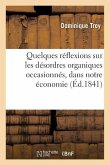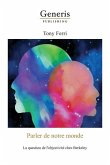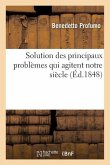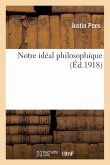Through the peremptory title, The Hell of Others is Our Hell, Tedambe Isaac underlines the notion of karma. He demonstrates that our actions have a significant impact on our existence. Man, whether he shows kindness or wickedness, works for his own future. Through a narrative that skillfully combines tales and historical facts, the Chadian author highlights the belligerent and corruptible nature of human beings. He draws on fratricides, the two world wars, racism, and even Nazism to demonstrate that Man has a tendency to harm his neighbor. Like Jean-Paul Sartre, he believes that "Hell is other people." However, the pit of hatred we dig, we risk falling into. Without limiting himself to bad deeds, Tedambe highlights human ingenuity, notably the invention of writing in different parts of the world such as Egypt, China or the Bamoun kingdom in Cameroon. He calls upon the prophets and different religious faiths such as Hinduism, Christianity, Islam or Buddhism in order to bring people closer together. The objective is to sow empathy and compassion in order to reap love, happiness and tolerance. À travers le titre péremptoire L'enfer des autres, c'est notre enfer, Tedambe Isaac souligne la notion de karma. Il démontre que nos actions ont un impact significatif sur notre existence. L'Homme, qu'il fasse preuve de bonté ou de méchanceté, uvre pour son propre devenir. Par l'entremise d'une narration qui associe savamment contes et faits historiques, l'auteur tchadien relève le caractère belliqueux et corruptible de l'être humain. Il s'appuie sur les fratricides, les deux guerres mondiales, le racisme et même le nazisme pour démontrer que l'Homme a tendance à nuire à son prochain. À la manière de Jean-Paul Sartre, il pense que l'Enfer, c'est les autres. Cependant, le fossé de la haine que nous creusons, nous risquons d'y tomber. Sans se limiter aux mauvaises actions, Tedambe met en exergue l'ingéniosité humaine, notamment l'invention de l'écriture dans les différentes parties du monde à l'instar de l'Égypte, de la Chine ou du royaume Bamoun, au Cameroun. Il convoque les prophètes et les différentes confessions religieuses telles que l'Hindouisme, le Christianisme, l'Islam ou le Bouddhisme afin de rapprocher les êtres. L'objectif étant de semer l'empathie, la compassion afin de récolter l'amour, le bonheur et la tolérance.
Bitte wählen Sie Ihr Anliegen aus.
Rechnungen
Retourenschein anfordern
Bestellstatus
Storno








